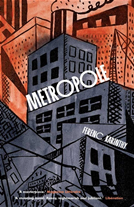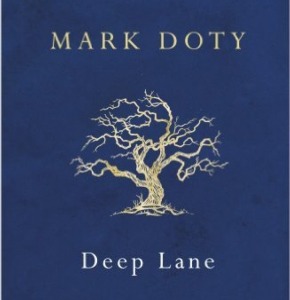Metropole, the first of Hungarian novelist Ferenc Karinthy’s books to be translated into English, comes garlanded with the most extravagant praise. The dust jacket carries the prediction of the French writer GO Chateaureynaud that the novel will in due course find a place in the 20th-century canon, alongside the The Trial and 1984.
 The comparison with Kafka is irresistible – Metropole is the story of a man accidentally and inexplicably cut adrift in a city he doesn’t recognise and in a country whose language he doesn’t speak. The endlessly, agonisingly frustrated attempts of the protagonist, Budai, to establish where he has ended up are authentically Kafkaesque (the essence of the Kafkaesque being a kind of unending bureaucratic present, rather than some melodrama of transcendence). However, the book of Kafka’s that Metropole most closely resembles is not The Trial, but its predecessor Amerika.
The comparison with Kafka is irresistible – Metropole is the story of a man accidentally and inexplicably cut adrift in a city he doesn’t recognise and in a country whose language he doesn’t speak. The endlessly, agonisingly frustrated attempts of the protagonist, Budai, to establish where he has ended up are authentically Kafkaesque (the essence of the Kafkaesque being a kind of unending bureaucratic present, rather than some melodrama of transcendence). However, the book of Kafka’s that Metropole most closely resembles is not The Trial, but its predecessor Amerika.
Kafka’s working title for Amerika was The Man Who Disappeared, and that is as good a description as any of Budai. Like Karl Rossmann in Kafka’s novel, Budai falls out of his own life and into an alien megalopolis. But whereas Karl is banished by his parents from Europe after getting a maid pregnant, Budai’s exile is wholly accidental. From the moment that he goes through the wrong door in an airport terminal, a sense of dread settles over the book – Budai’s rising dread that he will never discover the name of the place he is in, nor find his way back to his life with his family in Budapest.
We never discover whether or not Budai does make it back, though the tense in which the novel begins suggests that he may have: “Looking back on it later it could only have happened because Budai had gone through the wrong door in the confusion at the transit lounge…” “It”, of course, is Budai’s translation to a city he had expected to be Helsinki, where he was due to speak at a conference of linguists. Landing in an airport he doesn’t recognise, Budai is herded, with the other passengers, on to a bus and dumped at a hotel, where his passport is taken without explanation.
Budai is a linguist himself, and his despair at this turn of events is deepened when he realises that the people he finds himself among speak a tongue that even he, an expert in a dozen languages, cannot parse. In fact, the local patois is so impenetrable, so resistant to the tools of phonetic analysis, that Budai wonders whether each of the teeming millions in this vast urban agglomeration actually speaks an idiom of his very own, a private language. The skyscraper that Budai sees when he leaves the hotel each morning is a kind of Tower of Babel, therefore, the symbol of his abandonment in a place that he can’t begin to understand. It’s because the city is radically unintelligible to Budai that it becomes his prison.
Translated with beautiful economy by George Szirtes, Karinthy’s allegory of languagelessness certainly merits a place in the pantheon of Mittel-european dystopian modernism.
Metropole is published by Telegram

